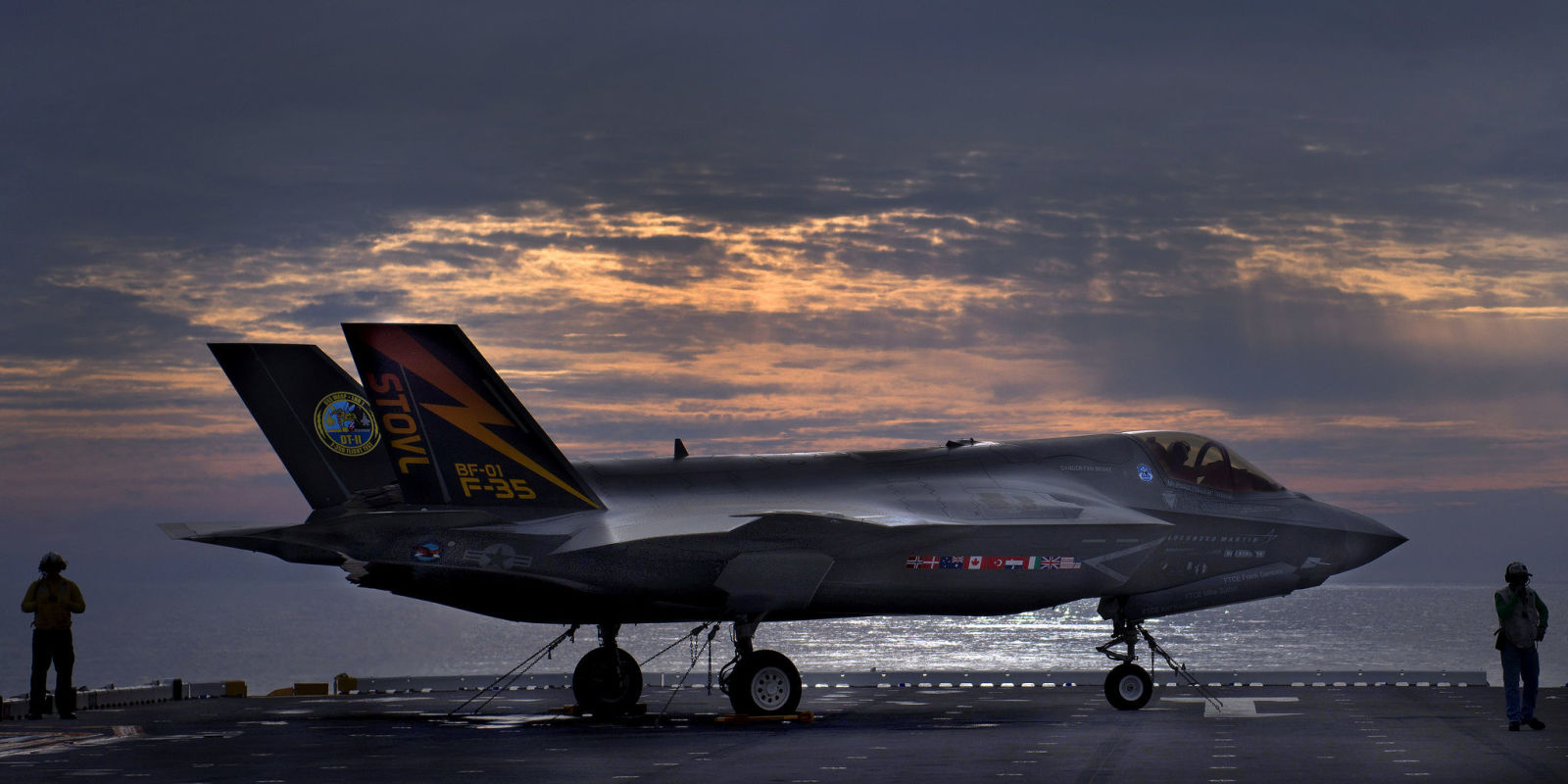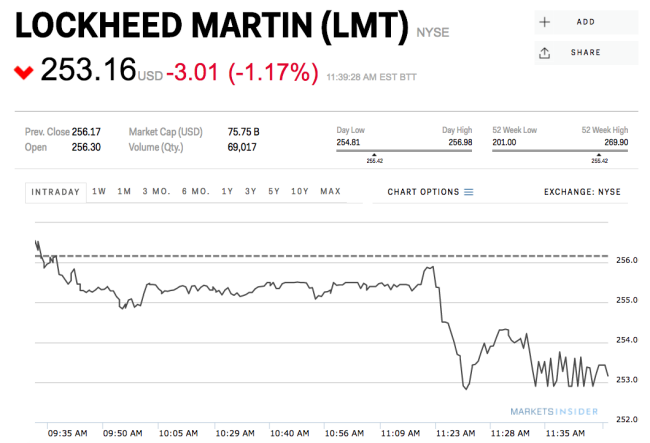In his first news conference since July, Trump dismissed reports of shady dealings with Russia, waved off calls to release his tax returns, and outlined plans to turn over his vast business empire to his children.
He promised he would be “the greatest jobs-producer that God ever created,” saying he’d repatriate American industry and outlining in broad strokes plans to reform the U.S. pharmaceutical industry.
Based on the tremendous cost and cost overruns of the Lockheed Martin F-35, I have asked Boeing to price-out a comparable F-18 Super Hornet!
— Donald J. Trump (@realDonaldTrump) December 22, 2016
Speaking prior to a q&a with reporters, he then turned his attention to the controversial jet that Canada’s own government says is too expensive and too much airplane for this country’s needs.
“I’m very much involved with the generals and admirals on the aeroplane, the F-35 – you’ve been reading about it,” Trump said. “It’s way, way behind schedule and many, many billions of dollars over-budget. I don’t like that.
“We’re going to do some big things on the F-35 program, and perhaps the F-18 program. We’re going to get those costs way down and we’re going to get the plane to be even better and we’re going to have some competition and it’s going to be a beautiful thing.”
Lockheed Martin shares fell more than one per cent after Wednesday’s comments. They fell two per cent Dec. 12 after the president-elect tweeted similar comments and said he’d asked Boeing to “price-out a comparable F-18 Super Hornet.”
Lockheed Martin shares subsequently rebounded and had nearly made up the ground they’d lost before Trump spoke this week.
More than 1,000 F-35s were to have been delivered to the U.S. military by 2016, but only 179 had been sent as of April 2016. The F-35 has been described as history’s most expensive aircraft, and its costs are predicted to go even higher.
Analysts have projected overall U.S. program costs at US $1.5 trillion through 2070, including service, maintenance and other expenses.
Prime Minister Justin Trudeau scrapped a planned F-35 purchase, saying Canada requires a defensive weapon, not a combat strike aircraft with expensive stealth technologies.
Yet the Liberals have not taken the F-35 off the table. The government renewed Canada’s participation in the Joint Strike Fighter program last spring. And in announcing an open call for proposals for a new fighter jet last month, Trudeau said the F-35 would not be excluded from the process.
Meanwhile, Ottawa is looking into purchasing 18 Super Hornet fighter jets as an interim measure. The Super Hornet is not a stealth aircraft.
Canada has invested CDN $300 million in the F-35’s development since it first became involved in the multinational Joint Strike Fighter program in 1997. It initially agreed to buy 65 at a lifetime cost of about $25 billion.
The program includes ongoing economic and industrial benefits largely contingent on purchasing the controversial aircraft. Lockheed Martin says Canadian industry has contracted more than $925 million in industrial opportunities.
The firm says the program has created hundreds of Canadian jobs at more than
110 companies and promises $11 billion in opportunities over the project life.
Advertisement





















